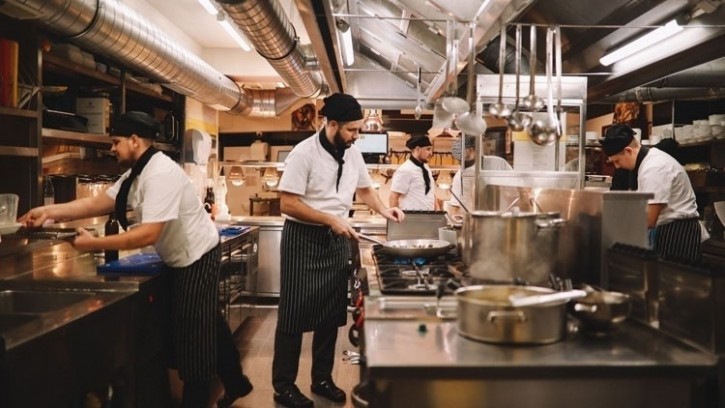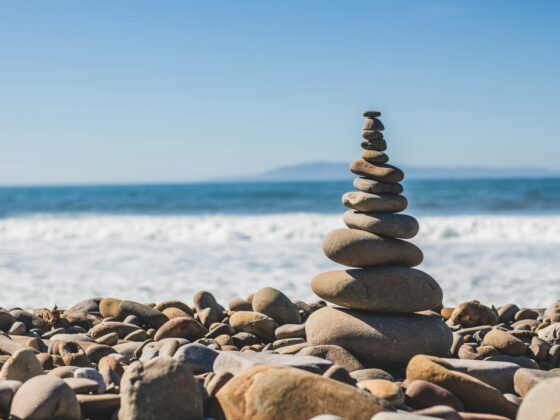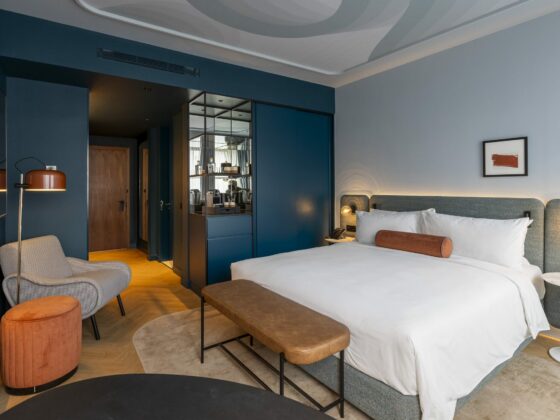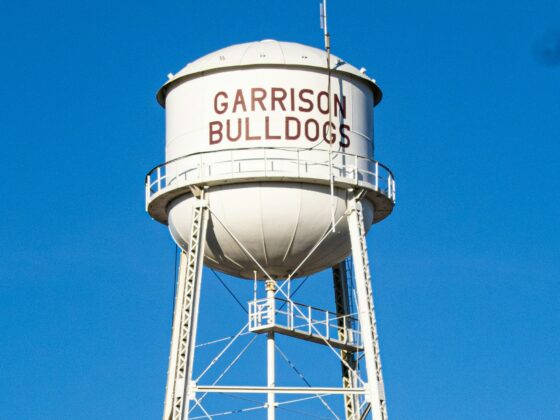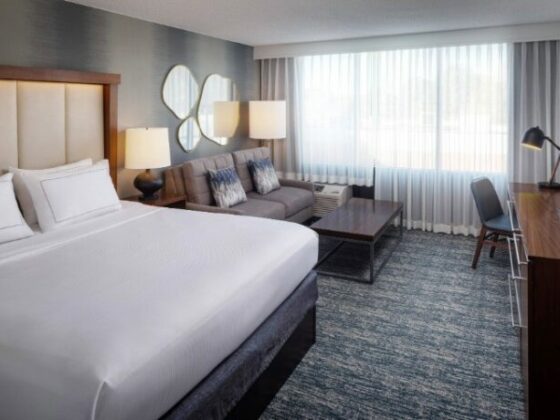Josiah: Do you ever have the feeling that the hospitality business could be so much more than it is today? Are you ready for a little inspiration? If so, I really encourage you to listen in to my conversation in this episode with Curtis Crimmins, the founder and CEO of Roomza, an innovative new hotel brand that’s rethinking everything when it comes to improving life for frontline workers and guests alike. Curtis invited me to stay at one of their properties recently, and I was really blown away by the level of personalization they offered and the end-to-end experience that I had. Stay tuned to hear more about all of this and get fired up by what’s possible in hospitality today.
Josiah: I’ve been really, really looking forward to our conversation, Curtis. I appreciate you making the time because I’ve been following your work for some time. I love what you’re building. There are so many elements of what we can get into, but I always like to begin our conversation with all my guests to give a little bit of a sense of how you got into hospitality. Was there an early experience or a memory or something that deformed your view of hospitality? And this may or may not be it, but I just want to say something that I really appreciate is how your tagline on LinkedIn and your bio, you say you’re the proud son of a housekeeper. I don’t know if you want to use that as kind of an early memory of hospitality but thank you for sharing that. I think we actually might get into that later in our conversation, but let me make it more of a question, less of a comment. I mean, what were some of those early memories or exposure to hospitality that were formative for you?
Curtis: You know, I grew up in a trailer park. A lot of people know that about me. If you don’t know that about me, now you do. And my first thought about hospitality was, wow, this is a paradise. My mom was a hotel housekeeper, and I used to get to go to the hotels with her. And it was the first time I’d ever seen a swimming pool. I was amazed by the crisp white sheets and by how clean the bathroom was. Everything worked. The refrigerators worked, the carpets were clean, and it smelled good. And for me, for the first time, it was a glimpse at the possible. And really, that’s what hospitality has been for me. It’s been a safe place, but it’s more than that. It’s been a job, but it’s been a way for me to prove what I can do, right? It’s been a way for me. It’s the art of the possible, right? In hospitality, we go above and beyond to create wonderful experiences for our guests, but what if we start by making wonderful experiences for ourselves first? And my mom taught me that, you know? Going to those rooms and seeing how they started and seeing how she left them, I was so proud to be like, my mom did that. But you know, watch as I didn’t translate. I would go to school and lie about what my mom did for work. That’s why my LinkedIn says I’m the proud son of a hotel housekeeper. Call it making up for lost time. Because I never had any reason to be ashamed of what my mom did for work. Just because society doesn’t see the value in their work doesn’t mean there isn’t value in their work. And so I think, and just a quick aside, I just got back from New Orleans. I got to take my mom there to one of our hotels with my husband. Seeing my mom get up and answer the door, talk to guests, fluff a pillow. And every once in a while, I would catch a glimpse of her just looking around. And that’s why I do this. And that’s really the full circle moment for me, being able to see what that person did for me and what people just like her do for not only their families but for guests everywhere. I think that housekeeping and our frontline workers are the unsung heroes of hospitality. And I’m here for them.
Josiah: Thank you for sharing that because we had a really good conversation before we started recording where I feel like we’re so aligned in trying to inspire people on the beauty of hospitality. Frankly, that’s not really a hard job when you look at some of the beautiful properties, your property, and some of the incredible hotels and resorts around the world. But I think there’s also this beauty in what you mentioned, the hard work of housekeeping. And as I shared with you before, you know, my dad works as a janitor now, and I feel like I don’t tell people about that. And there’s this weird, I don’t know, it’s interesting to kind of interface with that. I appreciate you sharing all that to say, like, I want to celebrate this. This is the hard work, the beautiful work that creates hospitality we all enjoy. It’s so important. And I think we need to talk about this. We need to recognize we need to celebrate this. Right.
Curtis: Well, I think a big part of it is, what is hospitality? In a lot of our minds, I think that it’s become a commodity. It’s become a flag. It’s become a brand. It’s become a line of amenities. It’s become a whatever. To me, hospitality has always been a feeling. It’s been that feeling of walking into that bright, clean, fresh room that was so alien to me, that was so different from everything I had experienced. I’ve been trying to bottle that feeling up and sell it back to people for a long time. And Roomza, I hope, is the first step in being able to make that a reality.
Josiah: Incredible. I want to talk all about Roomza, but one more question in kind of the direction of how you think about hospitality. I’m curious if a hospitality experience comes to mind that you had maybe a little bit later in your life before starting Roomza. Could be a positive one. It could be one that maybe didn’t go quite so well. But I’m just very curious on how you think about hospitality and kind of what that feels like when it’s done well. Does anything come to mind for you there?
Curtis: Oh, gosh, how much time do you have? A lot of a lot of things. Yeah, a lot of things come to mind. It turns out, you know, the truth is, I would say, by and large, positive experiences, positive experiences that but just like anything, it really is the the not so positive experiences that really light that fire that inspires us to go out and do something. For me, it was me and my husband checking into a hotel and being told by the front desk agent that she would not rent us a room with a king bed in it because she didn’t believe in it. This was a branded hotel. Whenever I reached out to that brand, I was told, well, as I’m sure you’re aware, each property is an independently owned and operated franchise, and we don’t have any control over how they run their business. Well, that sent me down a rabbit hole of looking into other things. Did you know many travelers of color have to bring their own pillowcases, their own sleep bonnets, their own amenities? Why does every room come with a Bible? Do we not have Muslim guests? And I’m not saying that that offends me. I’m not trying to get anyone upset about things. I’m just saying that in a position where our only job is to make you feel welcome, I feel like we go out of our way to make not everyone feel welcome. And so I think a big part of how that’s inspired us and what we’re doing now is the experience that you receive is your experience. You’re not staying in a hotel room, you’re staying in your hotel room. And that really started with that. But I think even on the flip side of that, I’ve had so many positive experiences that have reinforced the fact that that personalization is the future. And that’s a buzzword that everyone talks about right now. Personalization really just means that I care enough to ask. And then I care enough to be good on that promise. That’s all that it really means, right? There’s nothing fancy that a hotel can’t start doing right this day. I’m happy to sell them the personalization engine that we’ve created. But there isn’t anything stopping you from asking the question. And then it comes down to promises made and promises kept. And as I’m sure we’ll talk more about it, now we’re going to have to talk about what are you doing? What promises are you making? What promises are you keeping to your staff if you expect them to keep and make promises to your guests?
Josiah: I appreciate you sharing that. And I’m sorry to hear that stuff still exists, you know, for, for people for so many reasons, but it happened to you and your husband, it happens to people, it far, far, far too many people, right? And so I’m sorry that that happened to you both.
Curtis: Yeah, I was just gonna say, before you move on, I want to touch on what you really said: something that tugged at my heart: street people. And I think sometimes we really forget that. We get so caught up in the policy, we get so caught up in the procedure, we get so caught up in the everything. The one question I ask everybody in an interview is, tell me a time that you broke the rules at work to help a guest. Because we all have, right? Anyway.
Josiah: I like asking people about interview questions and I think that might be the best one I’ve heard. I try to answer it. I love it. I appreciate you talking a little bit about the philosophy of hospitality, because I’m sure we’ll get into talking about technology and logistics, but I think it has to start with your outlook. What are you trying to do here? It guides everything from how you build your business to the people you hire to how you run the business. I appreciate you inviting me to stay at the Rooms at New York property and experience it for myself. I read about Roomza for years now and followed your work, but actually experiencing it as a guest, what I noticed is what you mentioned of personalization may be a buzzword, but what’s underneath that, the listening, how do I cater to you? From what I experienced in the whole booking process, you’re asking questions in a very kind of natural sort of way around preferences. And then I’ve been having some muscle pain. So I ordered a Theragun. it’s something that takes a lot of work to coordinate, but I found the whole experience was personalized. And then after I arrived, they’re all kind of like surprise and delight moments that were sort of built into it. So I appreciate your hospitality and experiencing it as a guest showed me the power of this. I wonder if we could rewind the clock just a little bit and talk about the origin story of Founding Rooms. You teed it up a little bit on what you’re seeing out there in the market, but it’s hard to start a company and it takes a bit of a leap of faith. How did you go through that process?
Curtis: So the idea for rooms are first started in 2020. It was the beginning of the pandemic and everybody was like, Oh, this is just going to be two weeks. And I was like, I don’t think so. I don’t think it’s going to be two weeks. The original concept for rooms was incorporated in July 2020. And that company was administratively dissolved and then was re-founded in 2021 with my business partner and friend, Samantha Spring. She joined me after a career in finance in New York City. And really Roomza that today was born in 2021 as a hotel concept. And we really looked at each other and we were like, are we actually crazy enough to start a hotel brand in 2021? And we did. Right. And because for us, it wasn’t something that could keep, it wasn’t something that we could just wait around. Like Jerry Garcia said at best, somebody had to do something. It’s incredibly pathetic that it had to be us. we’re solving problems for ourselves. We’re making safer, cleaner, better hotels. Safer, cleaner, better hotels for me. Safer, cleaner, better hotels for Sam. And so we just had to get right to the work of doing it, right? We had to stop talking about doing it and get to the work of actually doing it. So we planted a flag in the ground and we said, we’re doing this. We’re a hotel brand. We don’t have any hotels. Check back later. And three years later, three long years later, We opened our first hotel and now we’re on our third. There are seven more that are in development. But the real core of why was too many people walk out of this business that I love feeling unwelcome. Too many people. And we’re not talking about onesie twosies anymore. We’re talking about the entire, and I’m not saying this to make anyone upset. This is just the truth. The entirety of branded hospitality is created for a demographic that is nowhere close to being the majority, has never been the majority. and as time goes on becomes more and more of the minority. We’re talking about college-educated, cisgender, heterosexual, Caucasian business travelers. The pandemic completely eviscerated that dynamic, that demographic. Why are we spending billions of dollars building for the past? I got tired of waiting for brands, no offense to the brands, I got tired of waiting for brands to come up with something more than just another version of what they already have come out with 50 times before. Show me something that improves outcomes for the workers. You’re the son of a janitor, I’m the son of a hotel housekeeper. What are these brands doing for people like our parents? The answer is nothing. It is actively harming them in many cases. fees have gotten so out of control that the President of the United States of America had to mention it in the State of the Union address. We are charging people $37 amenity fees to check into a rural hotel that has no more amenities than a parking lot. As we touched on before, African American travelers have to bring their own soaps and shampoos. Gay, lesbian, and transgender travelers are being actively and openly discriminated against. We have the technology. We can build this. And I think we have a moral responsibility to. You cannot look at something and say, I do not like that something because I know that it hurts people and then turn around and go about your business. If you do that, in my view, you are just as bad as the people who made the mess in the first place. And so for me, I needed to go back and close that cycle. I had to go back and I had to fix for myself whatever it was in that eight-year-old brain of me that said, lie to your classmates because your mother is not good enough. I had to prove to myself, to the world, to everyone else, that is not true. that their labor, not only does it matter, but it makes billions, trillions of dollars in one of the biggest industries in the world. And I think that the top-down approach to hospitality is over. And I think that what Roomza is for me started as a love letter to my mother, and it has become a love letter to service workers all around the world. And that is why, talking to you, my guests, that is why you had the experience that you had. It has nothing to do with me. I did not a single thing that went into your room. I did not make that bed. I did not clean that toilet. I did not check you in. I did not bring you that Theragun. I did not clean that Theragun. I did not do any of the things that you just told me were so impactful for you. Someone who cares did that. And they can only do that if I care first.
Josiah: I love your passion around this because I go to a lot of industry conferences and, frankly, feel a little bit deflated coming out of many of them because there are so many new brand announcements and they all feel like, okay, we have a new color on the wall or it’s these little tiny changes. And there’s that, and also, there’s consistent I don’t know if complaints is the right word, but they’re always talking about labor as like this line item that should always be reduced. And I get it from an investment perspective that the numbers need to work and that’s valid. But I think the framing of it and labor, it’s talked about in this very negative sense. I think there’s an opportunity to change that. And I appreciate you being a voice in helping reframe that.
Curtis: And it’s working. That’s another thing. These people are creating an environment that people want to pay to be in. I’ll give you an example. We’re probably the only hotel in Times Square or in New York City that gives away free parking. I can’t imagine anyone else does. But let’s do the math, really, for just a moment. This is not based on anything. I’m just using it, pulling out of thin air. Say you go to the Westin. I have Total, this is hypothetical. Let’s say you go to the Westin, and you pay $290 for your room, and then you pay another $100 all in for parking. So say you’re at $400, and then you pay $37 for a destination fee. After taxes and everything, you’re at, say, $450 for one night at the hotel. Guests will come and buy a room from us for $500 to not have to worry about all those steps. So it really isn’t about the fact that guests want something for free. Guests want to feel welcome. And here’s the thing, and they’ll go out of their way subconsciously to remove those things, again, in many cases subconsciously, that make them feel unwelcome, knowing there’s no destination fee, knowing there’s no amenity fee. Americans and international travelers, everyone indeed, work hard for their money. people take fewer vacations than ever before. And we owe them value for that. They don’t want to have to wonder, oh my gosh, how much is the security deposit going to be? Oh my gosh, how much is the amenity fee going to be? We had a family stay with us from South Carolina. And they were like, it was so great to be able to budget our trip knowing that what we paid covered everything, and I wasn’t going to have to pay anything else. Just that peace of mind is really valuable. I kind of forgot my point in all of that, but I think you just… Yeah, bring me back, please.
Josiah: No, no, no. I very much appreciate you sharing that because I don’t know, this has been bouncing around my head a long time and I have a background in revenue management. I get where some of these come from, but I also know as a guest, every time you ask for a transaction, I feel like it’s this mental kind of toll that it takes and it removes, it moves the experience more and more to a transactional kind of environment. And it moves it away from, I’m like I’m taken care of. or I’ve been taken care of for it. And I feel like the, I mean, I got in late to New York, right? And there’s a little snack cart outside, and I was famished, and I got a little bag of roasted almonds, and it was so good. It wasn’t like, it was clear that you didn’t just go to Costco and buy the cheapest ones. These were probably the best almonds I’ve ever had. And it was free. And yes, I probably would have spent some money there, but it felt so much better. And so if I think about kind of my affinity for the brand, likeliness to return, these things that it feels like you’re playing a bigger game. So I don’t know. I know I’m riffing a little bit, but I feel this as a guest and an observer. Right.
Curtis: Well, I think a big part of it is, and this has been a major frustration of mine going back in the industry for as long as I can remember, is it’s like, how much do we really pay for a bottle of water? Well, now I know how much we pay for a bottle of water. And it’s actually lower than I could have ever imagined. And it’s like, you know, but in the guest’s mind, like here, I think going back, we get to take advantage of the really bad behavior of hospitality brands, right? So to the guest’s mind, a bottle of water, a bottle of water is in no way, shape or form worth $8, right? We pay 30, 40 cents for this bottle of water. But in the guest’s mind, this could very well be an $8 bottle of water, right? And so just us putting out three Cokes for you, two bottles of sparkling, two bottles of still, some almonds that maybe cost us 30 cents. But to your mind, you’re like, wow, this place just gave me $50 worth of snacks, for free. We really gave you $1.70 worth of snacks for free. But again, there’s a difference. I think we like to focus on building the magic versus dismantling the magic. And what you talked about, all those little fees, every time you ask for a transaction, every time you push someone into it, every time you remind someone of their consumerism, Right? Every time you remind somebody that I don’t actually care about you unless you pay me. It dents that magic. And that’s why the way we work is we take all the money upfront. Right. You pay. And then everything from that point on is magical. And if it’s not money back.
Josiah: I love it, Chris. Now, it’s one thing to have this as an idea, a very novel forward-thinking idea. It’s also another thing and very hard to kind of manifest this in the built environment, right? Because there are so many interests that are kind of vested in the status quo. So I wonder if you could talk a little bit about kind of taking this from an idea to now your properties, your multiple properties that if I look at guest reviews, people are loving. I loved it as a guest. Maybe if you’d be open to kind of talk a little bit about the hotel within a hotel concept, I find that fascinating. And then you can talk about kind of scaling from there. But can you talk about maybe the opening of the Times Square property and how that came to be?
Curtis: Hotel within a hotel was Sam and I got together – my co-founder – and we were really like, okay, to your point earlier, we were like, we want to grow this thing, but translating an idea into the built world and hospitality I’ve seen upstarts with a billion dollars go bankrupt with a B, right? And it’s just, it’s, it’s impossibly difficult. The barrier to entry could not be higher. So the hotel within a hotel concept was really an answer to that. It allowed us to, I’ll give you an example. You know, we now have a flag in a presence in Times Square and our overall investment in those rooms was around $7,500 per room. For any other brand to bring a presence to Times Square, the average is around $2 million per key. So we were able to do it for a fraction of a fraction of a fraction, right? And to the hoteliers, we helped them reduce their reliance on online travel agencies. That’s why. So one of the really big, beautiful things about Roomza that’s kind of emerging as an accidental big hook is the OTA conversion rate. So guests that book at Roomza are very likely to book directly on a subsequent stay. So the data out of Times Square is 93%. 93% of OTA guests who have booked with us through an online travel agency and then come back to stay subsequently book directly on their second stay. A lot of the personalizations and things that you experienced will eventually become freemium. So an OTA guest will get a more value-oriented stay, whereas a direct guest will get those personalization and things like you mentioned, like the Theragun. the complimentary snacks that are personalized to you, the religious text menu, and things like that. Obviously, the OTA guests will still get some measure of personalization. That’s at the core of everything that we do and who we are. But we do want to have two swim lanes, one for OTA guests and one for direct guests. We think that that serves the market really well, and we’ve had a lot of success with that.
Josiah: It makes a ton of sense. Yeah, well, and I think in terms of it also provides incentives. And I think people get that, you know, if you have a direct relationship. And I think that’s where transparency is kind of helpful as well.
Curtis: Yeah. And I just want to touch on something that we’ve seen that other people might take something away from. One of my frustrations, we talked about revenue management. I’ve always disliked how we silo our customers. Right. We’re talking about this is group business. This is transient business. This is government business. This is education business. This is sports teams business. I just don’t think that that works anymore. And what we’re finding is the same rooms of guests that may be traveling through agencia on business will then come back and book direct on a personal stay, will then come back and book through an OTA whenever they’re on a value-oriented budget. I’ll give you an example. Say that we’re talking about you. You come to New York with your family for a week. You want the whole shebang. You book direct. Two months later, you’re coming back to New York for a conference. You’re being flown in. The rooms are covered. It’s booked through Agencia. Same guest. You come back another time. Oh, I only have an eight-hour layover in the city. I’m just going to book through Booking.com so that I can get the best value for my money. But we’re talking about the same consumer. And so I think that a big thing that we do is we look at the full life cycle of our relationship with you and all of the different ways that you may book with us in the future. We really try to put ourselves into this ideal consumer profile. We’ll put ourselves in our shoes, for lack of a better term, in your shoes, for lack of a better term, and try to understand the why behind why you’re staying with us. And then how do we give you the magic that is comparable to what you’ve paid and the reason that you’re staying with us, versus trying to look at this silo versus this silo, thinking that these are all groups of different people.
Josiah: This is where legacy marketing or revenue thinking is so ineffective. And what you’re describing is very people-focused. It is recognizing the complexity of all of us, where we travel for different reasons. We travel with different people and there’s different needs that we have, different preferences, different goals for each trip. So you’re taking a person-focused, not a segment-focused approach to hospitality.
Curtis: And if you think about every brand that’s out there, all of these brands hope to give you something that you like slash want, right? Whether it be fitness-oriented or wellness-oriented, or urban living oriented, whatever it is, right? They all have a different angle. What I like to say is rooms that gives you the thing or rooms that gives consumers the thing that they love more than anything else. We give them a reflection of themselves. right? Our brand is you. You inform how you experience our brand. And that, I think, is really revolutionary. That, I think, is the biggest thing. If Roomza, when Roomza becomes as big as X or whatever we want to compare it to, it will be because of that. It will be because I see myself reflected in my experience. I’ll give you a quick example. We had a guest who stayed with us who said, quote, Rumza is the most Muslim-friendly hotel in the United States. And I was like, wow, what makes you say that? Well, he was able to get a noble Quran. He was able to get a prayer rug because we ask. He was able to get a prayer compass because we asked. He was able to have a halal mini bar because he asked. You could be an Orthodox Christian and have the same experience, right? You could be Hindu and have the same experience. That’s the beauty of what we’ve created, and it really is a chameleon of a brand that shifts and moves around your needs and how you travel.
Josiah: This is the, I think what you described should be a new goal. I think for everyone to be the most, you know, fill in the blank friendly. I mean, not only business, but a person, like be the kind of person that is the most friendly, engaging to everybody. Because that’s what hospitality should be inclusive.
Curtis: We’ve all seen this in practice. You make someone angry, they go tell 10 people. Oh, but man, what if you just blow them away? I’ve had, at Roomza, I’ve had guests send me thank you cards in the mail. I have one right over there. Who does that? In the mail, thank you. I can’t tell you how many times. The first time a guest said, this is the best hotel stay I’ve ever had, I was like, okay, sure. The second time a guest said, this is the best hotel stay I’ve ever had, I was like, okay, sure. The 50th time a guest says, this is the best hotel stay I’ve ever had, I’m starting to think, well, maybe we’re onto something.
Josiah: I think you are. I wonder if you could share a little bit of the story of the opening in New Orleans because it’s been really fun to see photos of that project come to life. Was that a different approach than you took in New York with your Times Square property?
Curtis: So we have New York opened last December. Baltimore opened in April, shortly after. And then, yeah, as you said, New Orleans opened on the 1st of June. So here’s one of the crazy things about Roomza. And I don’t know if you’ve followed, but sometimes it comes up in threads. We just book all the conventions. The convention is you have to have six months of pre-sales. We’ve had no pre-sales for any of our properties. None. We’ve had a cold start on all of them. Moreover, how long do you think it took us to convert the Melrose mansion to rooms in New Orleans? So from the time that the contract was signed, it was less than 10 days. Less than 10 days. Wow. Less than 10 days.
Josiah: How do you do it so fast? That is insane.
Curtis: We’re just good at what we do, right? But that goes back to having a heavily inspired workforce, having people who under, do not know, who feel, who own their role in the organization. I say all the time, you are not a spoke in the wheel. You are the wheel. I’m the, I’m the redundant taillight on the back. All this works fine without me. None of this works fine without you. They have to know that. Right? Again, touching on that bottom-up approach that we live at Rooms every single day. I am the least important person in this organization. The least important. they are the most important. And everything we do here starts from the bottom. And I think that that bleeds through into everything that we do. How can we take a hotel, rebrand it, reopen it 10 days later and have it open to rave reviews sold out? Because we care more than anyone else. We care. And when you stay with us, that’s what you get. When you invest with us, that’s what you get. When you partner with us, that’s what you get. And that’s why we have partnerships like Amazon, Dyson, CR7, Pestana Hotel Group, and the Rubell family. And people look at us and they’re like, why would they go with an upstart that no one’s heard of? How do you get these illustrious partnerships that money can’t buy? It’s because money can’t buy them.
Josiah: People are attracted to a vision of what the world could be. I wonder if we could talk about people a little bit more because my understanding is that everybody who’s working in your organization has the title of host. I wonder if you could speak a bit more to that because I’ve heard organizations refer to the people working their whole range of everything from employees to workers to labor to sometimes associates or team members. Why host? What’s the meaning of that to you?
Curtis: That’s what they are. You know, I think there’s a lot of dignity in that term. If you work with us, you know not to call any of my people housekeepers. We don’t have housekeepers at Roomza. I don’t get very upset about a lot of things. That’s a lie. But I do get upset about that. And, you know, For me, I told you, I started this whole thing as a love letter to my mom. I guess it’s the title. If she’d been called a host, I don’t think I would have been ashamed of it. I don’t know if that’s the answer you’re looking for, but I think that’s the answer. I think that words have a lot of power. I think that a lot of humans are not that complicated, right? There’s a direct line from your ear to your self-esteem, to your heart. And I think that if you tell somebody that they are a maid, every day of their professional lives, they will think that they are a maid. If you tell someone that they are a host, every day of their professional lives, they will believe and they will act like they are a host. And that’s why everyone at Rooms Up is a host, starting with me, with Sam, with all of us, we’re all hosts. I will not ask you, it was hilarious. I’m down in New Orleans and a guest goes in and says, the pool guy was so nice. And they were like, who are you talking about? And they’re like, the guy out there in the Roomza polo cleaning the pool. They were like, yep, that’s not the pool guy. Right. But that’s, that’s really what, what we do here. And this is a hard business. This is not easy. We ask a lot out of these people, a lot out of these people. The very least we can do is recognize their hard work with a title that befits it. And I hope, I hope other hotels, you know, titles are stupid. This and that, and all these other things. And we have vice presidents at rooms up, but the title that they are most proud of is host.
Josiah: I wonder if you could speak a little bit more to the culture that you’re creating, because I think everything from the title to how you interact with people on your teams is driven by culture. I think you’re in a really unique position to take this philosophy of hospitality, this philosophy of operating, and then now as you’re scaling the organization, scaling’s hard because I sometimes see an individual hotel that will have a nice culture, but it’s really hard to grow that. I guess, how are you thinking as the founder and CEO and host of this organization? How are you thinking about culture in general?
Curtis: Sam and I say all the time that what we’re most proud of is the culture that we’ve created. We’ve all been in crappy corporate jobs where we were made to feel awful. We say all the time, and I think we mean it, that we would rather bankrupt the company than have it become what some other places we’ve worked at have been. I’d said early in the conversation that everything we do, we build for ourselves, right? And I think that Sam and I are committed to being the kind of bosses that we wish that we had. We’re open and we’re committed to building the kind of culture that we would have benefited from at that stage in our lives and careers. And as we grow, we certainly have had growing pains. We certainly have had scaling issues. Any company that tells you they haven’t is lying to you. But I think it just goes right back to that why and that sense of ownership and that sense of participation from everyone. Nobody here feels like they’re just an employee. I don’t think anyone here feels like they’re just anything. And so that really has been the deciding factor in how we become successful and how you get a similar experience, whether you’re staying with us in New York City, staying with us in Baltimore, staying with us in New Orleans, or at any of our other seven hotels that are under development that’ll be opening in the next year. That all comes from the same fount of inspiration, that same fount of belonging, that same fount of meaning that it’s my job and Sam’s job to breathe life and color into that every day.
Josiah: I love what you’re doing and it’s really exciting to see this unfold. I appreciate you taking me and our listeners on this journey from the origin of this to opening up some of your properties to think about people and culture.
Curtis: Yeah. 10 years ago, I could have never imagined. all the bad things you might hear about me are probably true. I said in the very beginning of this that Jerry Garcia famous quote, someone had to do something, it’s just incredibly pathetic, it had to be us. I think I sat around and waited for as long as I could. I know that Sam agrees. We waited as long as we could for someone to do something. for someone to make people feel the way I think we make people feel, not just guests, but workers alike. And if anybody takes anything away from that, I hope it’s that we really overcomplicate simple things. And if you want to have a better guest experience, take a look at your internal experience. If you’re having a hard time with turnover, the answer is probably staring you in the face. And I understand the dollars and cents component of it. I would encourage and implore decision-makers, people who do the hiring, and people who set wages to go a little bit outside of their comfort zone. We ask that of them, right? If the most you think you can pay is $21 an hour, pay them $22 an hour. We’re talking about a $5,000 a year difference. If you own a multi-hotel operation and you can’t make up $5,000, then you shouldn’t be in business. right? We ask these people to go outside of their comfort zones for us every single day. And I think my question to these folks that are in positions to make decisions is, how often do you go outside of yours? How often is the organization going outside of our comfort zone? Samantha and I provide free health insurance to every Roomza associate who wants it. They don’t have to pay anything for that. That is not easy to do. is incredibly hard. They know that that is incredibly hard. But guess what? When we ask them to do incredibly hard things, they know that we have done incredibly hard things for them. Too often, we expect them to do incredibly hard things for a paycheck. I’d like managers, directors, vice presidents, CEOs, and owners to know DoorDash is just as competitive as your hotel. The economy is changing. The world is changing. And we cannot think about labor in the negative. Labor is the machine that fuels our industry. It creates every dollar of prosperity that we all enjoy. If we want to continue that, we have to bring these people in. We have to make them a part of that prosperity. That will inspire the change that we all want to see in hospitality. The last thing I’ll say. The last thing I’ll say is we’ve always said, we do have some proprietary stuff, don’t get me wrong, but there’s a secret to the success that we’re having. And I hope that we’re just one lifeboat in a flotilla of lifeboats that go out there and do the things and do the work that’s necessary to change this industry for the better, for the future. all the things that we’ve all been through. Everyone listening to this has a hospitality horror story. What if the people who come after us have it a little bit better because we were here? And I know that maybe some of us think that we don’t have the power or the tools to go out and do that, but you do. In 2020, I got in my bathtub and I had a crazy idea. In 2021, I met Samantha Spring and we had an even crazier idea and everyone told us we were wrong. Everyone told us we couldn’t do it. Everyone told us the odds were stacked against us. I just walked through the World War II Museum in New Orleans. It’s a beautiful place if you have a chance to go. And there was a wall there that showed the forced strength at the beginning of World War II. Germany under the Third Reich had 3.1 million people. The United States military had 388,000. We cannot look into our history and think that we cannot overcome immeasurable odds because in fact, the only reason our species is still here is because we always have. The reason we came out of the swamp and into the cave and out of the cave and into the hut and out of the hut and into the house and out of the house and into the skyscraper is that we can do hard, impossible things. We look around us and everything that was created was created by people who are no smarter than us, who are no more capable than us. and in many cases, had the disadvantages of their place and time. We now have technology to aid us. All we have to do is find inside of ourselves the passion, the why, and then get to the work of doing it.
Josiah: Well, hats off to you, Curtis, and your team for being a person that takes action, for being a team, for being an organization that takes action. I feel so fired up and inspired and excited by what is possible listening to you. I know many of our listeners will as well. Where would you point people who want to learn more about you and what you’re doing?
Curtis: Gosh. So, I mean, I’m on social media. It’s Curtis Crimmins on everything. I’m not the hand surgeon in Wisconsin, so I’m the other one. And then just Roomza. Roomza Hotels on all social media. And like I said, come stay with us. Truly, truly come stay with us. And before we go, there are a couple of people that I couldn’t have done this without. I talked about Samantha Spring, who is my best friend and co-founder. I also want to touch, you know, Francis, Ariella, and everybody at BLLA. have been wonderful friends, and they’ve created a community for us that, and this is just not a plug, I didn’t even, we’re not a sponsor or anything this year, I just think that they’re fantastic, wonderful people. Every one of the conferences that they put on is just great. And last, you know, our investors at Dream Ventures believed in us when we didn’t have anything more than a really, really crazy and radical idea. And my point in mentioning those people is, you gotta dance with the ones who brought you. I will leave everybody with this, right? I think that we really, really need to build a community around an idea, around a passion, around a shared vision for what we want to achieve, and then love, trust, build, and pour back into that community. And that really has been the deciding difference for us here.

